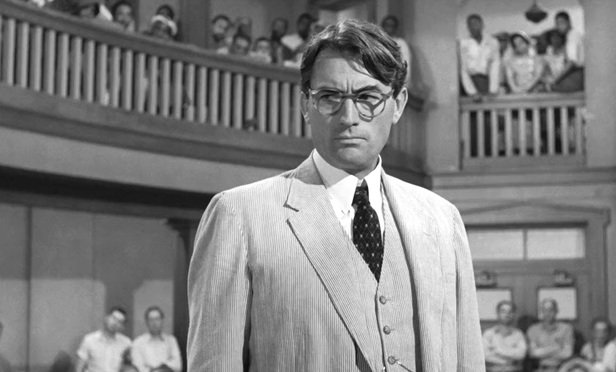Perhaps I’ve lost my idealism, but I’m not nearly as crestfallen as everyone else seems to be about the recent revelations concerning Atticus Finch, the heroic lawyer in Harper Lee’s classic To Kill a Mockingbird. In that book, Atticus is the moral center, the wise father and the brave soul who defends a black man falsely accused of raping a white woman in an Alabama town in the 1930s.
In the just released Go Set a Watchman, Lee’s original version of the classic, Finch is revealed as something quite different: a racist. Set in the 1950s, Watchman’s Atticus is now in his ’70s and he decries integration. Reports The New York Times’ Michiko Kakutani about this changed character:
The depiction of Atticus in “Watchman” makes for disturbing reading, and for “Mockingbird” fans, it’s especially disorienting. Scout is shocked to find, during her trip home, that her beloved father, who taught her everything she knows about fairness and compassion, has been affiliating with raving anti-integration, anti-black crazies, and the reader shares her horror and confusion. How could the saintly Atticus — described early in the book in much the same terms as he is in “Mockingbird” — suddenly emerge as a bigot?






